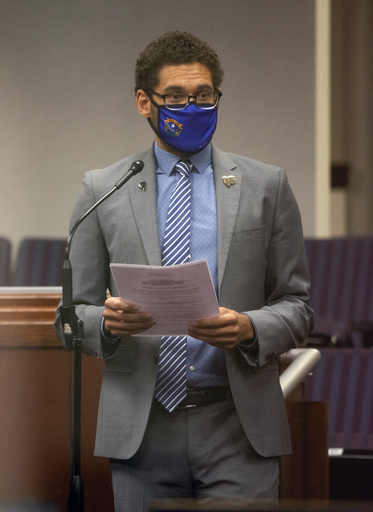California and Nevada voters will have the opportunity to vote in November on proposals aimed at prohibiting forced prison labor by revising sections of their state constitutions that reflect the remnants of chattel slavery.
The intended measures look to safeguard the rights of incarcerated individuals who are currently compelled to work under threat of punishment. In these states, it is common for inmates to receive wages of less than $1 per hour for tasks such as firefighting, prison sanitation, manufacturing license plates, or performing maintenance work at cemeteries.
Currently, Nevada holds around 10,000 inmates, all of whom are mandated to either work or engage in vocational training for about 40 hours weekly unless they have a medical exemption. Some inmates earn meager wages as low as 35 cents an hour.
As voters prepare to consider these proposals, one advocate with the Abolish Slavery National Network, Jamilia Land, highlighted the historic nature of the upcoming elections. “California and Nevada have a chance to eradicate legalized, constitutional slavery, especially with the first Black woman nominated for president,” she mentioned, referencing Vice President Kamala Harris’ unprecedented candidacy.
In recent years, other states including Colorado, Alabama, and Tennessee have taken steps to eliminate exceptions for slavery and involuntary servitude, albeit not without challenges. For instance, Colorado was the first to remove such exceptions from its constitution in 2018; however, allegations surfaced in a 2022 lawsuit claiming that forced labor continued in the state prisons.
Kamau Allen, another co-founder of the Abolish Slavery National Network, spoke about the impact of these measures, asserting their significance in providing constitutional protections for a previously marginalized group.
The initiative in Nevada seeks to amend the state constitution to eliminate slavery and involuntary servitude as penalties for crimes. In California, while an exemption for slavery was removed in the 1970s, the provision regarding involuntary servitude remains intact.
Among the various job opportunities for inmates in Nevada, wildland firefighting stands out as a desirable option, with participants earning approximately $24 a day.
Chris Peterson, the legal director for the American Civil Liberties Union of Nevada, emphasizes that while many incarcerated individuals wish to engage in meaningful work, the compensation structure is inequitable. He noted that prisoners receive “pennies per hour” for dangerous tasks, contrasting sharply with what others make in similar situations.
Additionally, a state law provides a modified workers’ compensation program for injured inmates, but the payouts are based on their low prevailing wages at the time of injury. For example, Darrell White, a prison firefighter, was awarded a disability payment of just $22.30 monthly after an injury, despite having previously earned only 50 cents daily.
White contested this unfair treatment in court, asserting that his compensation should align with the state’s minimum wage, which was $7.25 at the time. However, his appeal was ultimately denied by the Nevada Supreme Court, leaving the question of minimum wage rights for prisoners unresolved.
The California state Senate had turned down a prior iteration of this proposal, with concerns raised by the administration of Democratic Governor Gavin Newsom about potential costs associated with implementing minimum wage for all inmates. Earlier this year, Newsom enacted legislation requiring the Department of Corrections to establish a voluntary work program that sets wages for incarcerated individuals. However, this law’s implementation hinges on voter approval of the ongoing forced labor ban.
California Assemblymember Lori Wilson, the author of this year’s proposal, believes the changes will grant incarcerated individuals a chance at rehabilitation through education and therapy instead of forced labor. Drawing from her own experiences, Wilson explained how therapy helped her overcome childhood trauma, contrasting her own transformation with her brother’s incarceration due to a lack of support.
Yannick Ortega, a former inmate who served a 20-year sentence for murder, shared her story of being compelled to work various jobs during her time. Now a certified paralegal and substance abuse counselor, she expressed that serving time should be the punishment itself, reiterating that being locked up should not also require forced labor.



